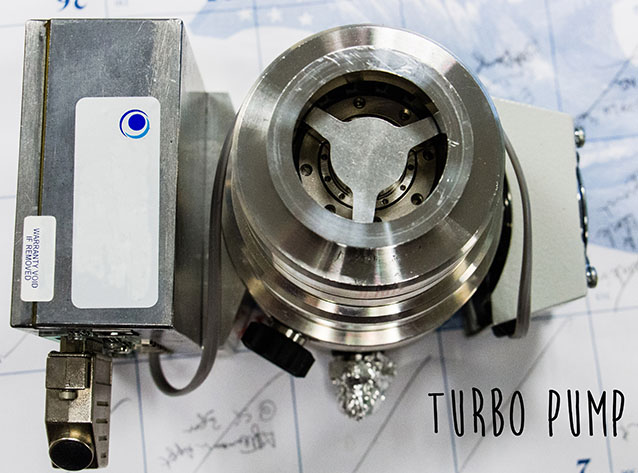
NPS Photo/M.Reed
“1.21 gigawatts! 1.21 gigawatts. Great Scott!” If you are a nerd like us and thought this was the flux capacitor that allowed Marty McFly to travel back to the future in a DeLorean then read this week’s #sciencedeskdigs featuring chemist, Barkley Sive. Sometimes real-life science is even more amazing than science fiction.
What is it?
This is a turbo pump, which is part of a larger instrument called a Proton Transfer Reaction Mass Spectrometer (PTR-MS), that analyzes gases in the air in national parks. Outside air is drawn into the instrument and then analyzed in real time to tell us what pollutants, and how much of them, are in the air. I am specifically looking at ozone precursors, such as volatile organic compounds (VOCs), as well as gases such as carbon monoxide (CO), methane (CH4), and nitrogen oxides (NOx). When VOCs, CO and CH4 react with oxidants in the presence of sunlight and NOx, they will further react to form ozone. We need to understand these precursor gases in order to identify where ozone is and what processes (i.e., cars, power plants, factories, wildfires, etc.) are driving the ozone levels in various locations
Because ozone is detrimental to human health and ecosystems, it is critical that we, the NPS, monitor ozone levels so we can ensure the safety and welfare of visitors, employees and our precious resources.
National Parks actually have some of the longest historical records of ozone data in the U.S., and from these data we can see that the general trend is improving for most places, but there are still areas that greatly exceed safe levels.
Describe your workspace in one word
Collaborative. I am just one piece of the puzzle and I work with a group of people from around the country that each bring their piece to the table to solve a problem that will help everyone.
Last updated: March 8, 2018
